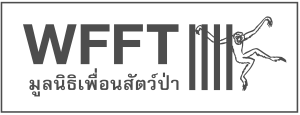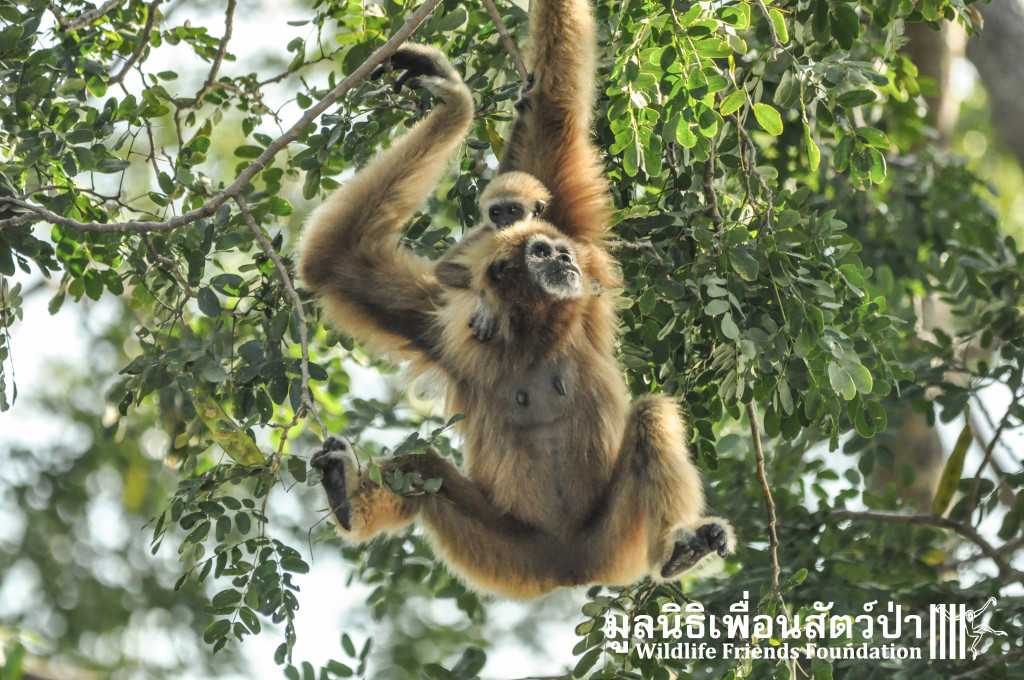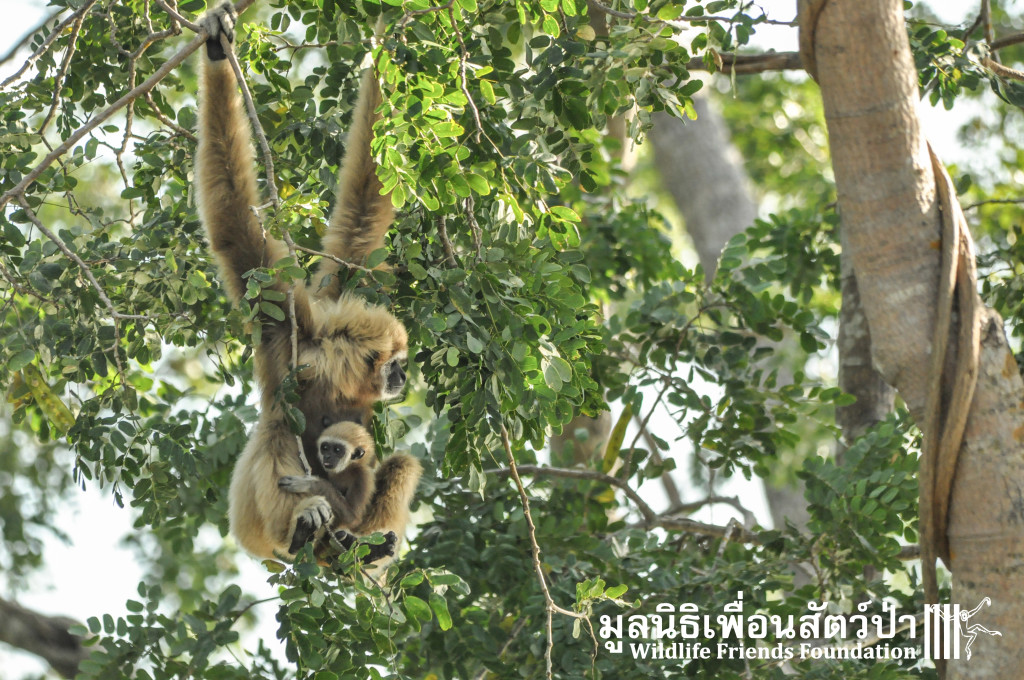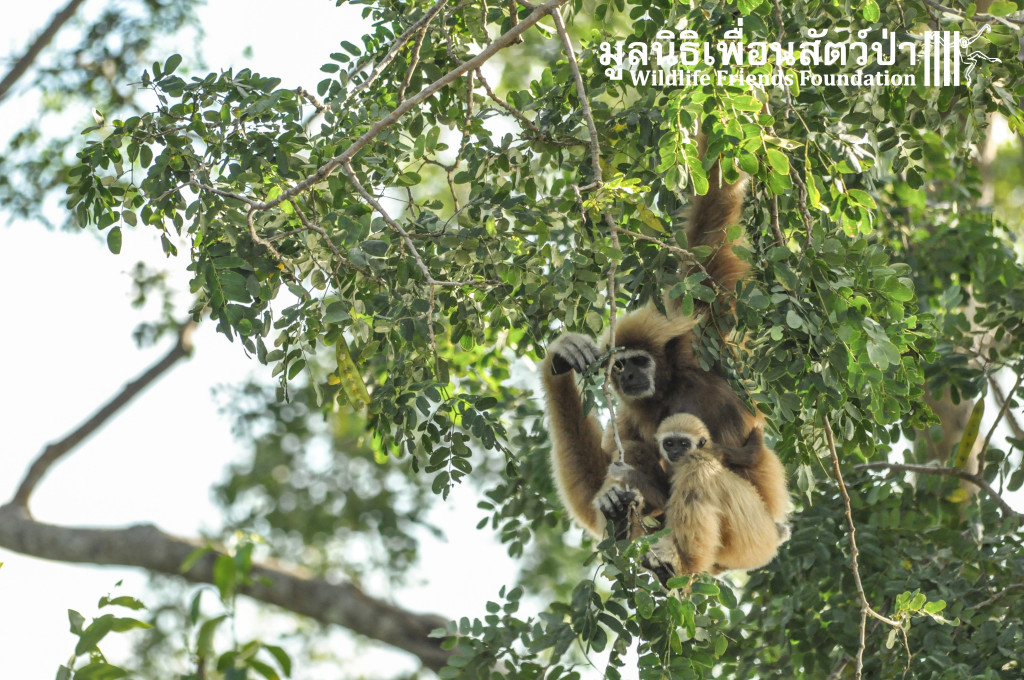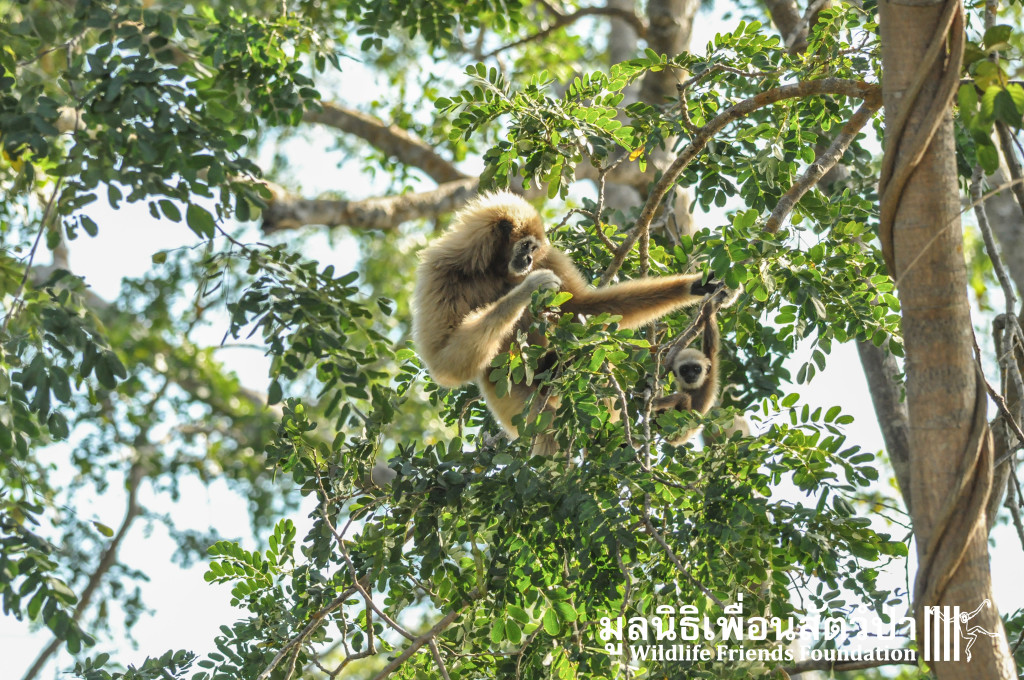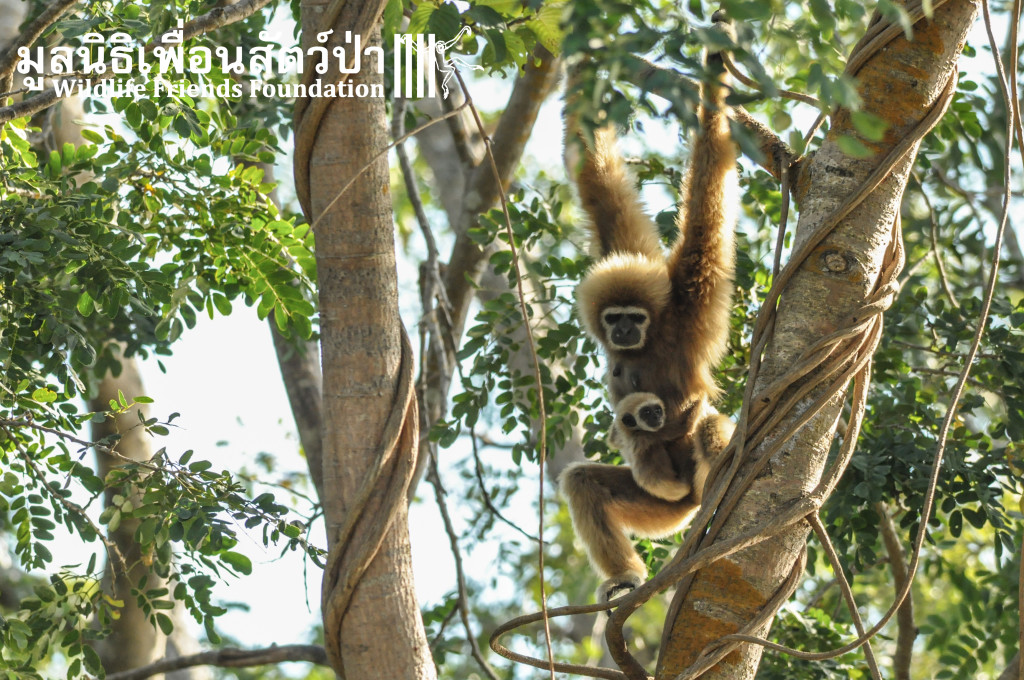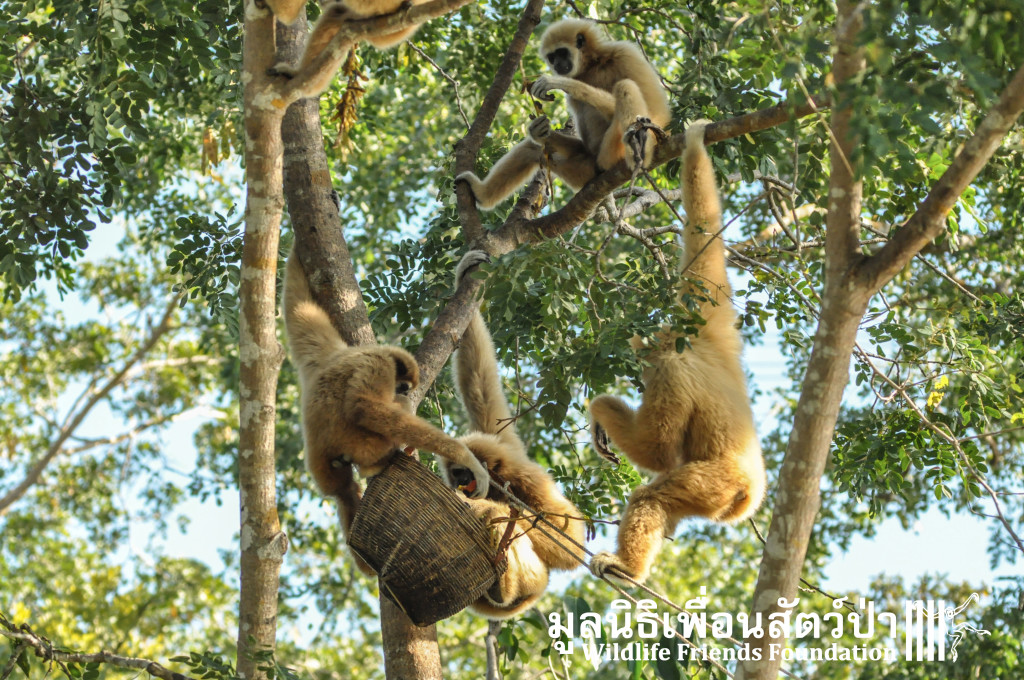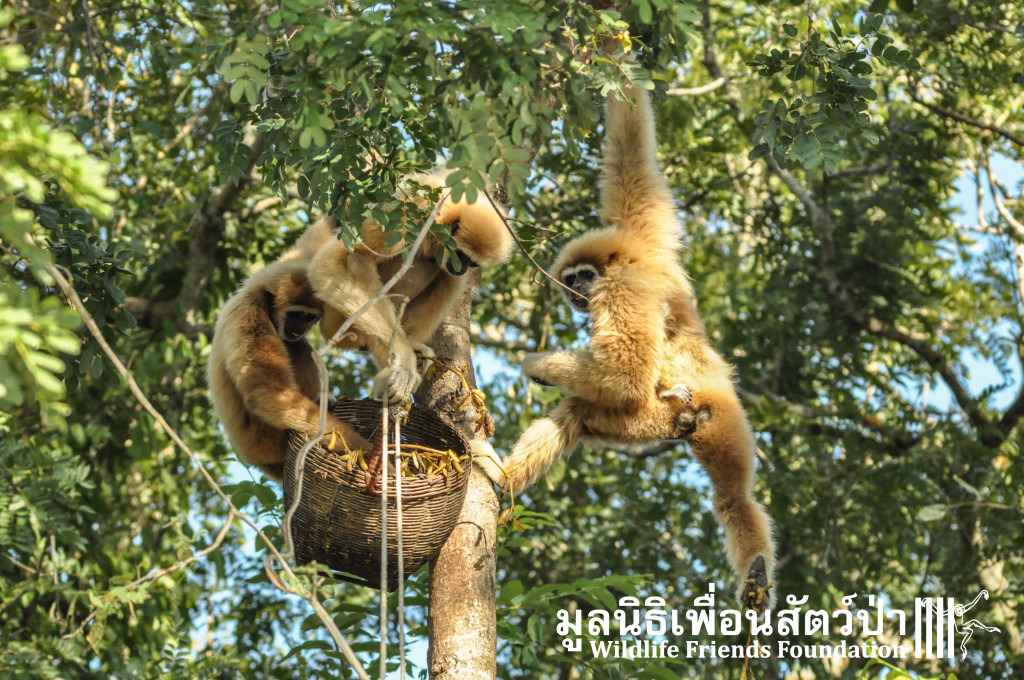A big step forward! An MOU has been signed with the coconut industry and authorities to phase out monkey labour and exploitation in coconut harvesting.
Island Gibbon Family Update
The WFFT Gibbon Rehabilitation Islands provide a perfect naturalistic environment for gibbons that we aim to return back to the wild. The largest of the 8 gibbon rehabilitation islands is currently occupied by Tangkwah, the white-handed gibbon (Hylobates lar) and her ‘family’, made up of 5 other rescued adult gibbons and a new addition to the family, her yet to be named infant who is 5 months old. The white-handed gibbon is listed as Endangered (EN) by the IUCN, each of the 15 gibbon species continue to be threatened and are listed as EN or higher. Our gibbon release project stalled some time ago but we are in the process of establishing a new project to allow us to again start returning gibbons home. We are also working with Mahidol University here in Thailand, on a release project for rescued Asiatic black bears. We will be supporting the funding and the provision of equipment for this groundbreaking project. If this project is a success the future of the bears at WFFT may become a lot different.
ตอนนี้โครงการปล่อยชะนีคืนสู่ป่ากำลังหาพื้นที่ป่าที่สมบูรณ์เพื่อให้เป็นบ้านหลังใหม่ของชะนีในโครงการ เช่นครอบครัวใหญ่ของชะนีแม่ลูกอ่อนอย่างแตงกวา มีสมาชิกทั้งหมด 5 ตัว และลูกชะนีสมาชิกใหม่อายุ 5 เดือน ทั้งหมดเป็นชะนีมือขาว (Hylobates lar) ปัจจุบัน IUCN จัดให้ชะนีมือขาวอยู่ในอันดับสิ่งมีชีวิตที่ใกล้สูญพันธุ์ ส่วนชะนี 15 สายพันธุ์ที่เหลือก็ถูกจัดให้อยู่ในอันดับสิ่งมีชีวิตที่ใกล้สูญพันธุ์หรือมากกว่านั้น จึงเป็นโครงการที่พวกเราตั้งใจมากและหวังว่าจะประสบความสำเร็จ เราจะร่วมมือกับมหาวิทยาลัยมหิดลเช่นเดียวกับโครงการปล่อยหมีคืนสู่ป่า เราจะระดมทุนเพื่อให้โครงการนี้สำเร็จ หากเป็นเหมือนที่เราตั้งใจเชื่อเลยว่าอนาคตของสัตว์ป่าจะเปลี่ยนไปอย่างแน่นอน
